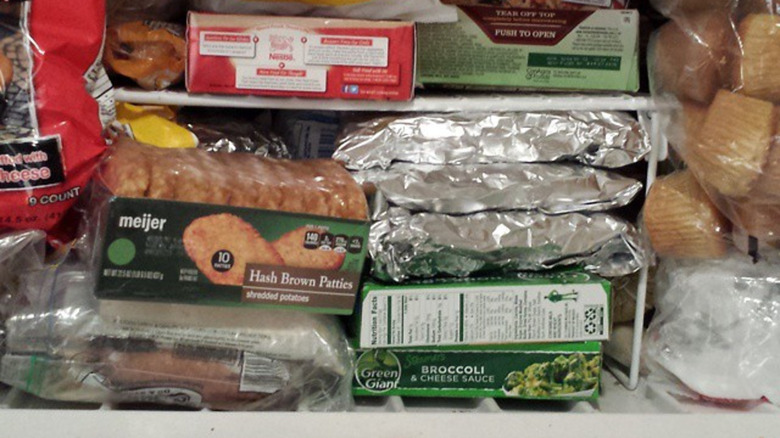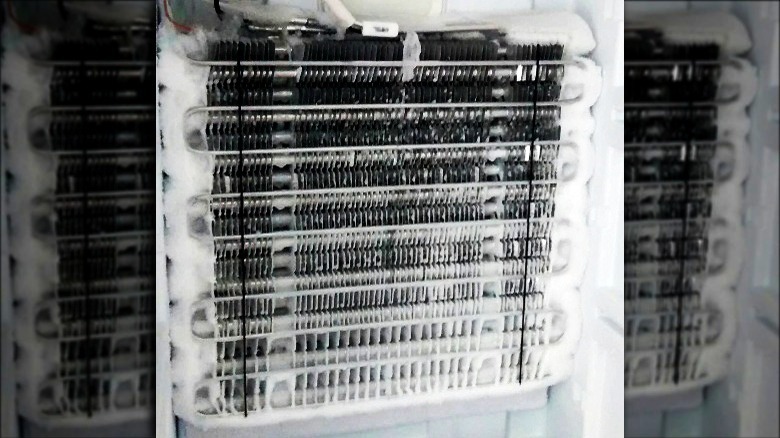How Overfilling Your Freezer Can Affect The Food
Can you have too much of a good thing? If it's something that keeps well in a freezer, such as Jeni's ice cream or grass-fed Angus, then you'd be tempted to say an emphatic, "Heck no!" Never mind what Gordon Ramsay says on "Kitchen Nightmares"; it is okay to freeze fish. It can even be better than fresh (via The Spruce Eats). And you can give overripe bananas a new lease on life by throwing them in the freezer until you're ready to make banana bread or smoothies.
So there are a lot of culinary reasons to load up your freezer. But you also save money by filling your freezer to capacity because it will use less electricity, according to Eat This, Not That! An energy-efficient refrigerator with the freezer on top uses less energy than a 60-watt light bulb, per Energy Star, but keep in mind that this would be a light bulb left on 24/7/365. Depending on the design of your refrigerator/freezer, you might spend more than $75 a year to keep it running.
Why is a full freezer more efficient than an empty one? Every time you open the freezer, cold air escapes and is replaced by warm air from the room. Your freezer must work to cool that air to about 0 degrees Fahrenheit. With more stuff in the freezer, less warm air can rush in, so the freezer will have less work to do after you open the door. But be warned: You can have too much of a good thing in your freezer, after all.
An overfilled freezer could cause it to burn out
What can go wrong if your freezer is too full? One obvious answer is that the overflow will block the freezer door from closing, which will cause some food to start thawing — especially food stored near the door. The outside air leaking into the fridge will be moist, too, which will cause excessive frost buildup (via Sears).
But if the door is free and clear to close properly, you could still be in for a serious problem. If the freezer is so full that air can't circulate well inside it, then air cooled by the freezer's coils won't find its way to the thermostat — or much of the rest of the freezer, per The Naked Scientists. The thermostat will continue to register a higher temperature, and it will "tell" the cooling coils to keep working. Some parts of the freezer will remain too warm, which could eventually cause your food to spoil, according to Tom's Guide. Meanwhile, the motor running the cooling elements is getting overworked, which might lead to freezer breakdown.
One more problem with overfilling the freezer needs a mention — one that doesn't require science or engineering to understand. If your freezer is full of so much stuff there's no room to breathe in there, chances are a few of the things in the back or bottom aren't going to be found again for a long time. Tom's Guide noted this food could suffer freezer burn and a loss of quality in taste, texture, and appearance.

